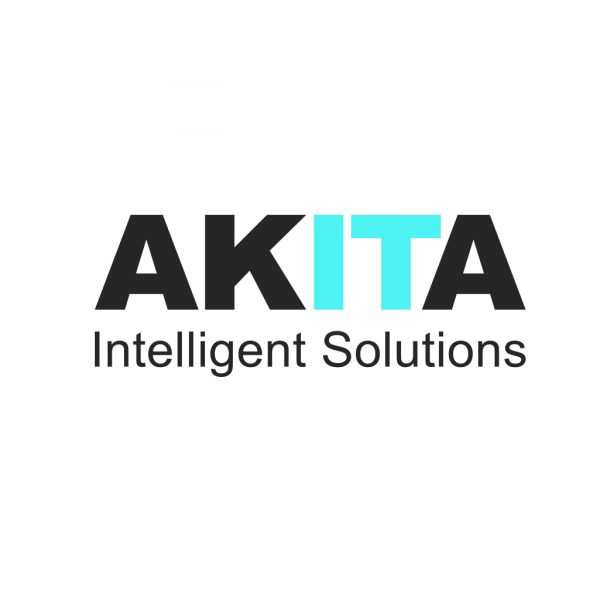Choosing the right business platform in construction isn’t just an IT decision — it’s a financial and operational one.
With margins under constant pressure, projects getting more complex, and compliance tightening, your software has to work hard across finance, project delivery, supply chain and workforce management. Two systems often compared in this space are Microsoft Dynamics 365 and Pegasus Opera 3.
Both handle finance, projects, and reporting. But the differences in architecture, scalability, and visibility can make one far better suited to your operation than the other. Let’s cut through the noise.
Understanding Construction Software
Microsoft Dynamics 365
Dynamics 365 is Microsoft’s flagship business management suite — effectively combining ERP and CRM in the cloud. It covers finance, operations, supply chain, field service, HR, and sales, all tightly linked to Microsoft 365, Power BI, and Teams.
In construction terms, it’s designed for companies managing multiple entities, contracts, and sites — giving real-time visibility from tender through to completion.
Pegasus Opera 3
Pegasus Opera 3 (and Opera 3 SQL SE) is a UK-developed ERP system long used in finance and operations teams across SMEs. It’s strong on financials, job costing, payroll, and core business processes. Pegasus has also added modules for CRM, stock control, and service management — all familiar to mid-sized UK construction and contracting firms.
Dynamics 365 vs Pegasus: How they stack up
- Deployment and infrastructure
Dynamics 365: Fully cloud-based with on-prem options for specific components. Integrates natively with Microsoft 365, Power BI and Power Platform — meaning project data, costs, and communications can live in one ecosystem.
Pegasus: Traditionally on-premises, though cloud hosting is available via partners under the “Pegasus Business Cloud” banner.
Takeaway: If your leadership goal is to modernise IT and reduce reliance on local servers, Dynamics 365 wins. If you want to stay with familiar, on-prem architecture and control your own environment, Pegasus offers that continuity.
- Financial control and project accounting
In construction, profitability depends on visibility — labour, materials, subcontractors, and retentions all need to align under a single version of truth.
Dynamics 365 delivers project accounting that ties cost codes directly into budgets, schedules and resources. With live dashboards in Power BI, finance directors can see performance mid-project, not months later.
Pegasus Opera 3 has strong core accounting and job costing, but less depth around live project forecasting or linking field data back to budgets in real time.
Verdict: For CFOs or financial controllers wanting dynamic cost forecasting and unified data, Dynamics 365 is the stronger option. Pegasus still suits firms that only need periodic reporting and a familiar UK accounts environment.
- Integration and information flow
Dynamics 365 natively connects with Outlook, Excel, Power BI, and Teams, giving seamless data sharing between office and site. Site managers can input data on mobile devices that syncs straight to finance and operations.
Pegasus integrates well within its own modules and can link to Excel or Power BI via its Data Connector, but wider integration is more limited.
Verdict: If your business is already Microsoft-centric — and most UK construction firms are — Dynamics 365 gives tighter, more automated data flow from bid to completion.
- Scalability and future growth
Construction rarely stands still. A firm can double in size through new contracts or acquisitions.
Dynamics 365 scales easily: new business units, sites, or even countries can be added with minimal infrastructure change.
Pegasus performs well within its SME heartland but can strain under multi-entity, multi-currency, or complex group structures.
Verdict: For leaders aiming for growth, Dynamics 365 is the platform that grows with you. Pegasus fits a stable, regionally focused firm with no immediate expansion plans.
- Usability and user adoption
Dynamics 365 has a modern interface and dashboards familiar to anyone using other Microsoft tools. Implementation can be heavier, but once embedded, it delivers a unified view across functions.
Pegasus Opera 3 has a more traditional interface — easy for finance teams used to legacy systems but less intuitive for non-finance users.
Verdict: For cross-departmental visibility, Dynamics 365 encourages adoption. For finance-only teams, Pegasus is easier to learn quickly.
- Cost and total ownership
Dynamics 365 operates on a subscription model — typically higher up-front investment and partner implementation costs, but it removes server maintenance and scales efficiently.
Pegasus licensing is modular, and the overall entry cost is lower. However, on-prem deployments mean you retain responsibility for servers, updates, and backups.
Verdict: If you view IT as a strategic investment — not just a cost — Dynamics 365 offers better long-term value. Pegasus suits firms keeping tight reins on capital spend and preferring to control infrastructure internally.
- Construction-specific fit
Construction firms need systems that handle subcontractor compliance, CIS, retentions, project cost tracking, and industry-specific reporting.
Dynamics 365, especially with industry-focused extensions like Dynamics 365 Business Central for construction or partner add-ons, covers CIS compliance, job costing, project lifecycle management, and even integrates field service operations.
Pegasus Opera 3 includes an indigenous Construction Industry Scheme module for CIS deductions and subcontractor management — though Akita has developed its own CIS solution for Business Central. However, its overall project management functionality is lighter.
Verdict: Pegasus offers solid UK compliance out-of-the-box. Dynamics 365, with the right implementation partner, offers a more complete long-term platform for project, finance and operational control.
Executive-level considerations
For Finance Directors
You’re likely focused on real-time cost control, cash flow visibility, and accurate forecasting. Dynamics 365 gives that through unified data, predictive reporting, and Power BI analytics. Pegasus delivers reliable ledgers and reports, but relies on manual consolidation and Excel for deeper insight.
For Operations Directors
Visibility of project performance, workforce allocation and procurement drives delivery efficiency. Dynamics 365’s integration across field service, supply chain and scheduling provides this. Pegasus handles job costing well, but operational oversight is more limited.
For Managing Directors and CEOs
Scalability, resilience and future readiness matter most. Dynamics 365 aligns with digital transformation goals and supports a modern data strategy. Pegasus represents stability and lower immediate risk, but may require replacement as complexity grows.
Two typical scenarios
Scenario 1: Regional contractor, 50 staff, steady workflow
Projects are UK-based, turnover around £5 million, and managed with a small finance team. The company needs accurate job costing and payroll.
Best fit: Pegasus Opera 3 — cost-effective, UK-centric, does the essentials well.
Scenario 2: Growing construction group, 200 + staff, multiple entities
Operating across several regions, the business needs consolidated financials, inter-company visibility, advanced reporting, and strong Microsoft integration.
Best fit: Dynamics 365 — scalable, integrated, and future-proof.
The Bottom Line
Both platforms have strong credentials. The choice between Dynamics 365 vs Pegasus ultimately hinges on your business trajectory.
Pegasus Opera 3 suits construction firms that value cost control, UK compliance, and a familiar interface without needing enterprise-level scalability.
Dynamics 365 is better for those pursuing growth, integration, and data-driven decision-making.
For finance and operations leaders, the key is not just to compare software features — but to ask which platform will give you control, foresight, and confidence when project margins tighten.
Final thought
Construction success increasingly depends on information flow — from site to boardroom. Whether that means tracking live project costs in Power BI dashboards or automating CIS submissions, the right system must turn data into decisions.
Pegasus gives you stability.
Dynamics 365 gives you agility and scalability.
The decision comes down to where your business wants to be in three years’ time.





